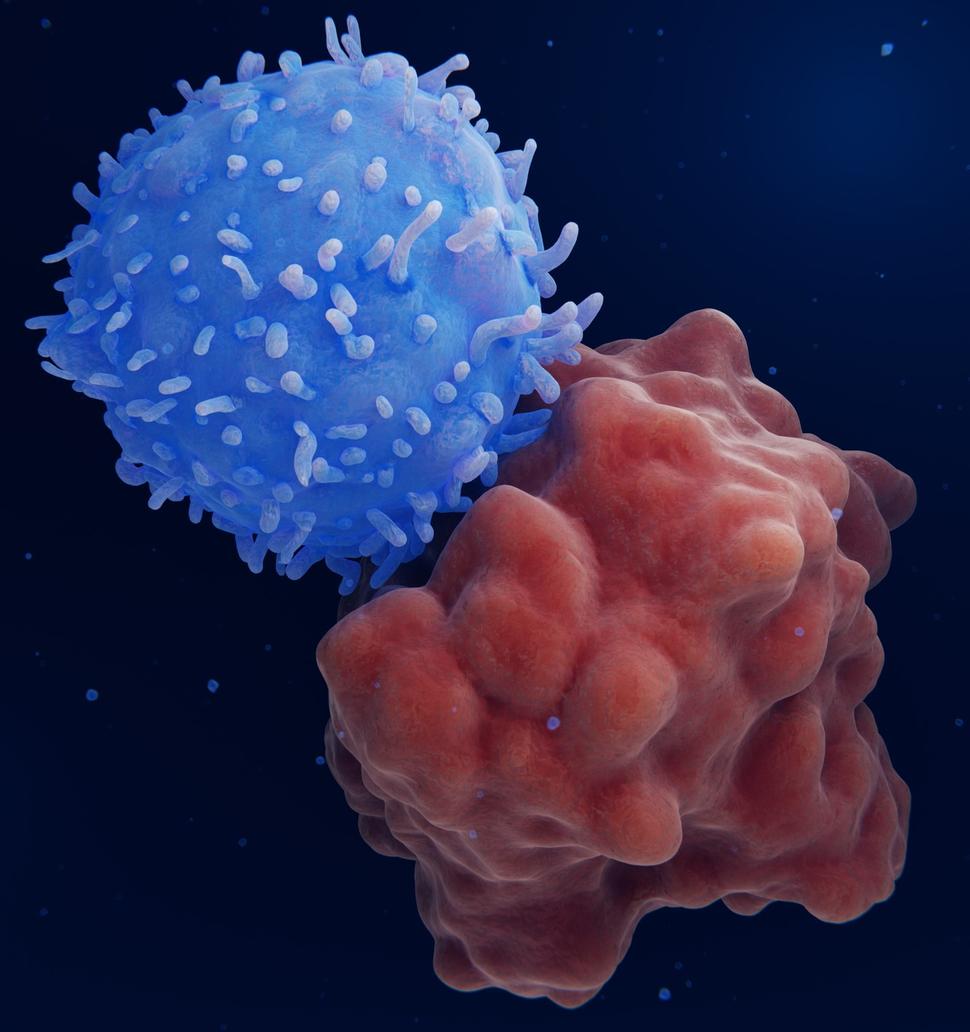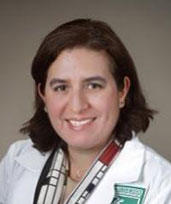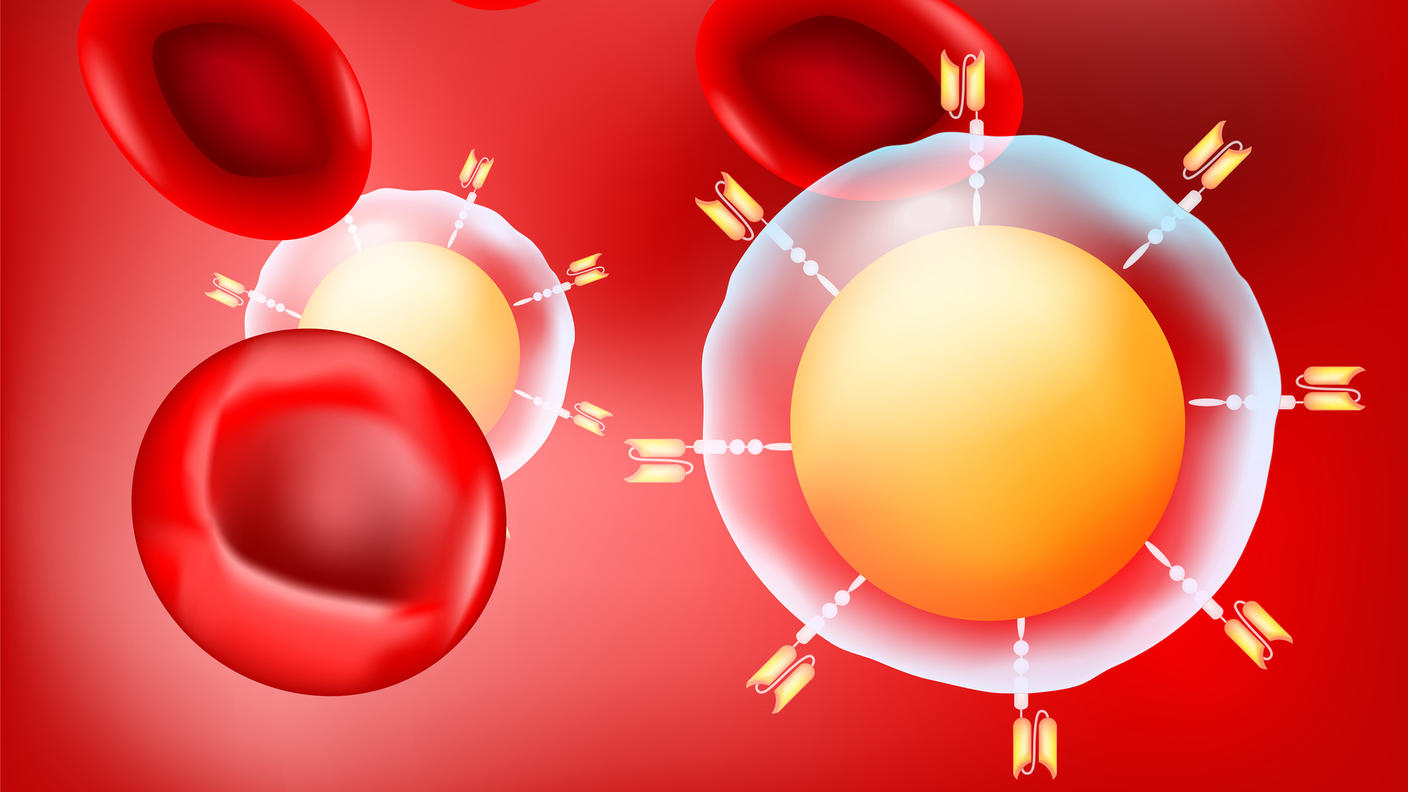Understanding the Risk of Second Cancers After CAR T-Cell Therapy
, by Carmen Phillips
In November 2023, the Food and Drug Administration announced that it was investigating more than 20 instances of second cancers—specifically, T-cell lymphomas—in people who had been treated with CAR T-cell therapies. In several instances, the agency noted, genes used to make the CAR T-cell treatments were present in the secondary T-cell lymphomas, raising the possibility that the engineered T cells had caused the cancers.
On June 4, 2024, one of the largest studies of second cancers following CAR T-cell therapy and a case report on an individual who developed a T-cell lymphoma following CAR T-cell therapy were simultaneously published in the New England Journal of Medicine (NEJM).
In this Q&A, Stephanie Goff, M.D., of NCI’s Center for Cancer Research, who specializes in developing and testing gene-engineered T-cell therapies, including CARs, talks about these two recent additions to what’s known about CAR T-cell therapy and second cancers and what this issue means in general for patients and this area of research.
Can you summarize the two recent reports in NEJM?
Dr. Goff: Both reports looked with incredible depth to see if they could determine a causal link between the CAR T-cell treatment and second cancers.
One was a study of more than 700 people treated with CAR T-cell therapy at a single cancer center. Over a 9-year period, 25 second cancers were diagnosed. Of these, only one was a T-cell lymphoma. The researchers didn’t find any evidence of CAR genes in the T-cell lymphoma and concluded that the CAR T-cell therapy did not directly cause the cancer.
The other report was a case study of a single patient who developed a T-cell lymphoma approximately 5 months after receiving CAR T-cell therapy to treat multiple myeloma. The research team found evidence of a CAR gene in the T-cell lymphoma cells, along with other genetic changes that can cause cells to become cancerous. They concluded that the treatment “probably contributed” to the development of that person’s second cancer.
CAR T-cell therapies have been tested in clinical trials for two decades and been widely available for nearly 7 years. Why are these reports of second T-cell lymphomas only happening now?
Dr. Goff: There are a few factors at play here.
First, with any new type of therapy, you begin by testing them in small trials of 10, 20, 30 patients and then usually move on to bigger trials, often with hundreds of patients. Those trials are typically sufficient to identify common treatment-related side effects or safety concerns. This is how we were able to identify and learn how to manage common side effects of CAR T-cell therapies like cytokine release syndrome, or CRS, and neurologic toxicities often called ICANS.
But if you're talking about problems that happen very infrequently, you’re not going to get a “signal” that those problems exist until a treatment is used in a lot more people. So, with more than 34,000 people now having been treated with CAR T-cell therapy, we can now pick up such signals.
And secondly, on the flip side, we’re starting to see what's called “survivor bias.” That’s when you have patients who, prior to the availability of CAR T-cell therapies, would not have lived very long, often just a few months. But now many are living for many years, and some are cured of their original cancer, so there’s time for something like a second cancer to happen.
And the main concern is that the CAR T cells are potentially causing these second T-cell cancers?
Dr. Goff: Yes. But it’s important to say that these specific second cancers have always been a known hypothetical risk that has been discussed among researchers and that is also explained to people before they participate in clinical trials involving these treatments.
There are a variety of ways in which giving patients genetically engineered T cells could theoretically lead to the development of secondary T-cell cancers.
To begin with, to make CAR T-cell therapies, new genetic material is inserted into the T cells we collect from the patient. Using the approved technology for making CAR T-cell therapies, the new material can be randomly inserted anywhere along the over 30 billion different positions in our DNA. This newly inserted material could unintentionally activate a cancer gene or disrupt a tumor-suppressor gene, a process called insertional oncogenesis. We take specific steps, however, to reduce the chances of that problem.
A rarer possibility is that, when the engineered T cells are grown rapidly in the lab, that process could cause some changes in the T cells that cause them to become cancerous.
One underlying problem is that we are using T cells from a patient who has already developed a blood cancer and has likely already had a lot of chemotherapy. There may be an unknown combination of factors in those T cells that carry a higher risk of eventually developing into a cancer sometime after the infusion.
All of this is a big part of the reason that people treated with CAR T-cell therapies have had to be followed for at least 15 years—so we can be on the lookout for these kinds of issues.
What about the risk of other types of second cancers?
Dr. Goff: Part of what complicates this picture is that people who have blood cancers already have a combination of factors that led to the development of that cancer in the first place. So those underlying issues, like accumulation of mutations over time or known genetic risk factors, are still there after receiving the CAR T-cell treatment. So even as you’ve tackled the initial cancer, it doesn't mean that there's not an underlying risk for a second cancer.
A second thing to keep in mind is the very powerful chemotherapy we have to give patients before giving them CAR T-cell therapy. The chemotherapy allows the engineered T cells to do the work we want them to, but it can also potentially cause second cancers down the road.
Even so, the data we have thus far strongly suggest that second cancers of any kind are rare.
Are there ways to reduce what appears to be an already very low risk of second cancers?
Dr. Goff: Some research teams are looking at alternatives to the high-dose chemotherapy that’s given prior to CAR T-cell therapy, which kills other immune cells and creates an environment that encourages the CAR T cells to grow.
Finding a safer alternative to high-dose chemotherapy would be great, as long as the whole CAR T-cell regimen remains as effective against cancer. You certainly don't want to compromise the high rate of long-lasting complete responses that we see now in people with leukemia and lymphoma treated with CAR T-cell therapies.
And in the case of multiple myeloma, for which CAR T-cell therapies result in fewer complete responses than with leukemias and lymphomas, these treatments have been of great value. CAR T-cell therapy allows many people with multiple myeloma to go for longer and longer gaps without getting any treatment, which is really important for people with this disease.
Other approaches for reducing the second cancers risk are also being investigated. While the risk of insertional oncogenesis is low, there are groups investigating other methods for even further reducing that risk while achieving the same great cancer outcomes as approved methods for making CAR T-cell therapies.
Some, for example, are testing ways to have more targeted placement of the genetic information for the CARs. Others are studying “off-the-shelf” treatments that use T cells from a person without known cancer, called allogeneic CAR T cells, which allows them to thoroughly study the impact of different insertion sites in advance.
So, overall, what’s your take-home message on CAR T-cell therapy and the risk of second cancers?
Dr. Goff: We have to continue being vigilant about monitoring people treated with CAR T-cell therapies. We've now moved from 15 years of follow-up on patients in our CAR T-cell therapy trials to essentially following these patients for the rest of their natural lives. The risk of second cancers is very, very low, but as these studies point out, not zero.
Overall, I remain very optimistic about CAR T-cell therapy for blood cancers. It’s giving many patients effective treatment options that they didn't have before and helping many people live longer, and with a high quality of life.


